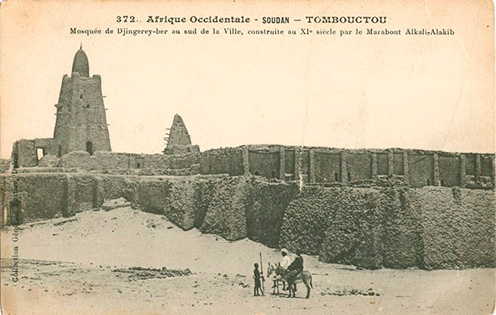Texts, Forgeries, and the Legitimate Ruler in 19th century Islamic West Africa

Talk by Associate Professor Mauro Nobili (University of Illinois – Urbana Champaign).
Abstract
Since the 2012 eruption of war in Northern Mali that led to a brief occupation of the fabled city of Timbuktu by jihadist militias, news agencies have often reported news on the so-called “Timbuktu manuscripts” – in fact a shorthand for the large heritage of Islamic manuscript of the peoples of the Niger Bend. At times, it was the threat of destruction of this precious heritage; other times, it was the brave efforts of local librarians to smuggle the manuscripts out of Timbuktu during the time of jihadist occupation; more recently, it is news of initiatives to preserve and digitize these manuscripts, including the bombastic Google project called Mali Magic.
In this talk, Mauro Nobili will focus on one of the most renowned texts of the Arabic literature of West Africa, the Tārīkh al-fattāsh (“the Chronicle of the Inquisitive Researcher”) a historical chronicle that scholars usually date to the sixteenth century, and I will demonstrate that it is a later, forged work.
Forgery of historiographical texts and chronicles are not uncommon and the French historian Marc Bloch once wrote that scholars have to deal with forgeries to discover the actors and the motives behind them. Following Bloch’s recommendations, I will be asking who could have written this fake chronicle and why. To find an answer to these questions I will analyze the intermingling of history, power, and Arabic literacy in West Africa. As a result of my discussion, I will show that the Tārīkh al-fattāsh was written in the nineteenth century by a local Muslim learned man named Nūḥ b. al-Ṭāhir, who elaborated preexisting historiographical material to create a supporting historical document for an Islamic policy that emerged in what is today central Mali after a coup: the so-called Caliphate of Hamdallāhi (1818-1862). Its founding ruler, Aḥmad Lobbo, had to face the fundamental issue that the leaders of any coup, including the many that have characterized the recent history of West Africa, have to address, i.e. the question of legitimacy. The “fake chronicle” comes into play at this point, providing the needed historical legitimacy to the caliphate that rests on local and global notions of Islamic authority.
Everyone is welcome, no registration is required.

